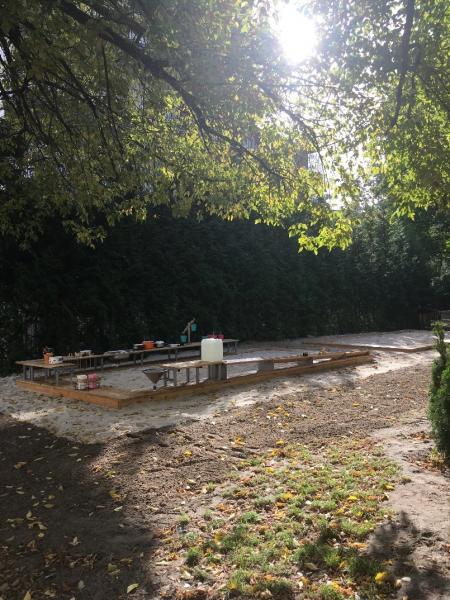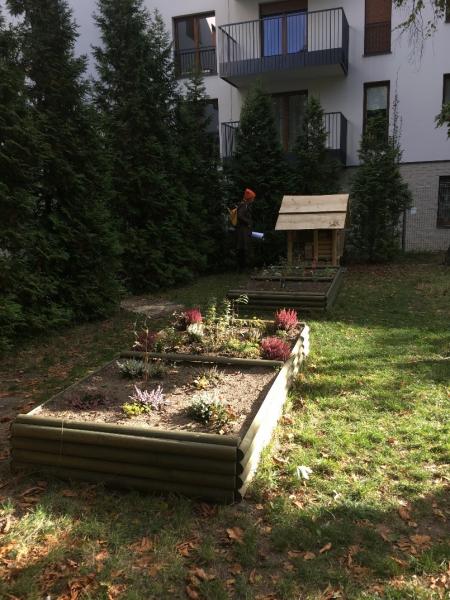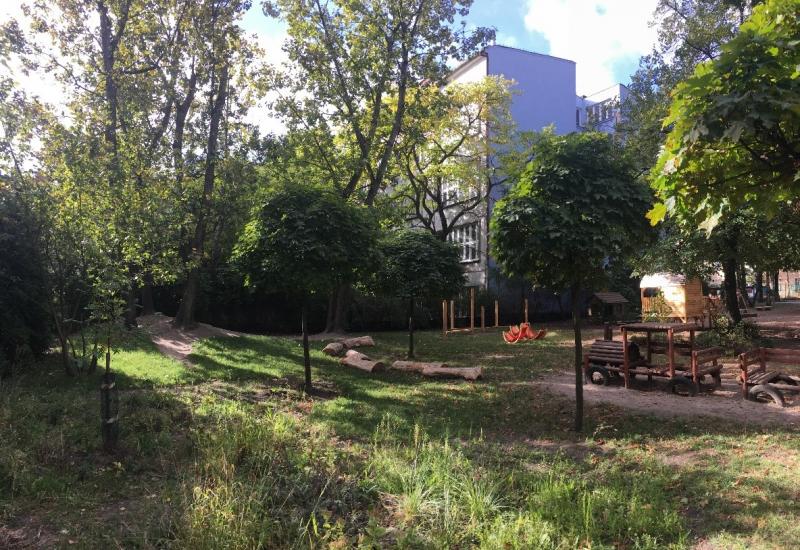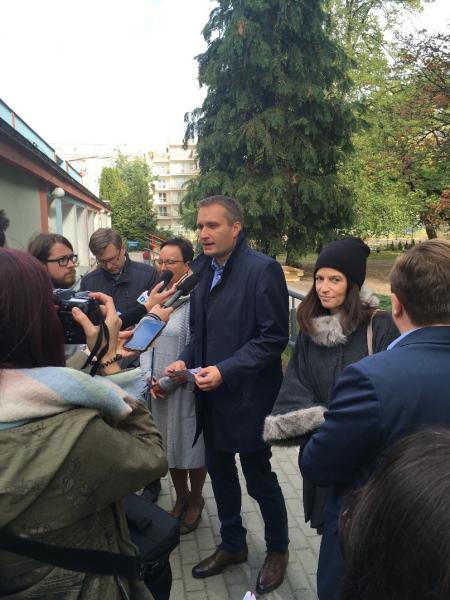Meteorological stations, houses for insects, mud kitchens, tables with various species of plants just some of the installations placed in several kindergartens in Poznań to encourage the children to use their free time to explore nature.

Source: City of Poznań/Natalia Madajczyk
As part of the "Connecting Nature" project, mini-installations were placed in 10 kindergartens, thanks to which children can see and understand how nature works. Among them is a house for insects, flowerbeds in which children can grow plants, a weather machine (mini weather station), rainarium (simple rainwater collection system), green table (wooden table with a top that is planted with various plant species) and a willow hut (a natural hut made from willow shoots.)
The kindergarten gardens have been changed into natural playgrounds. The old asphalt surface was replaced with natural - grass and sand. Natural materials were also used for the play equipment. For example, the path and meeting circle have wooden elements. Other natural elements of the garden include the earthy hill, stumps, natural earth paths, labyrinths with bushes, these all serve as a place to play.
The project, implemented thanks to the cooperation of the Project Coordination and Urban Regeneration Office and the Department of Education, aims to promote among children a sensitivity to nature and a knowledge about the natural processes taking place around us. Made in Art Foundation, who designed and implemented the installations tried to create different activities to help educate the children about the different ways we can protect the environment around us.
The aim of the project is to support the development of pre-school gardens, equipping gardens in "green and natural" elements and promotion of ecology among preschoolers. The equipment was constructed in 10 selected kindergartens in the City of Poznań, which were selected by the Department of Education as part of the Program for the modernization and development of playgrounds in kindergartens in 2016-2020.
The equipment was designed and constructed in preschool gardens with the children helping to design the space. Using elements of nature - water, earth and air - the children can manipulate the space to build and create their garden.

Source: City of Poznań/Natalia Madajczyk
“The spaces created as part of the project are a background for children's activity, for their creative activities. There are no barriers there. Children can freely manipulate this space, arrange it, use it as they think fit,” - explains Alina Skrobek, the headmistress of Kindergarten No. 87. “I wanted to emphasize that the youngest took part in the arrangement of this space. The resulting concept is a response to their needs.”
The equipment is a new and original concept which is designed to be age appropriate, made from natural resources and show that there are significant relationships between the various components of the natural environment.
The intention is to help the children care for their natural environment and show the changes that occur in it throughout the year. The children will be able to explore not only the short-term effects on their nature-based solutions but through time will see the longer-term development of mini-ecosystems in their gardens.
The city plans to organize seminars, conferences and workshops for kindergartens in the coming year, during which teachers will share the results of their work.
As Agnieszka Górczewska (deputy director of the Project Coordination and Urban Regeneration Office) remarks, “In such a place children can learn how to grow plants or how to collect rainwater, and then use the acquired knowledge in their own garden. What's more, through their education, the youngest will be able to influence their parents too”
The project has been well received and praised by city councillors and the hope is to replicate it in other areas of the city.

Source: City of Poznań/Natalia Madajczyk
“The city of Poznań is known for greenery wedges and large parks, but in built-up inner-city districts there are often no places to breathe. Such kind of green enclaves can be kindergartens and their gardens. Just arrange them and open them to neighbours. We hope that these good experiences will be replicated in other districts, because we have something to boast about”, says Łukasz Mikuła, chairman of the Spatial Policy Commission of the City Council of Poznań.

Source: City of Poznań/Natalia Madajczyk
